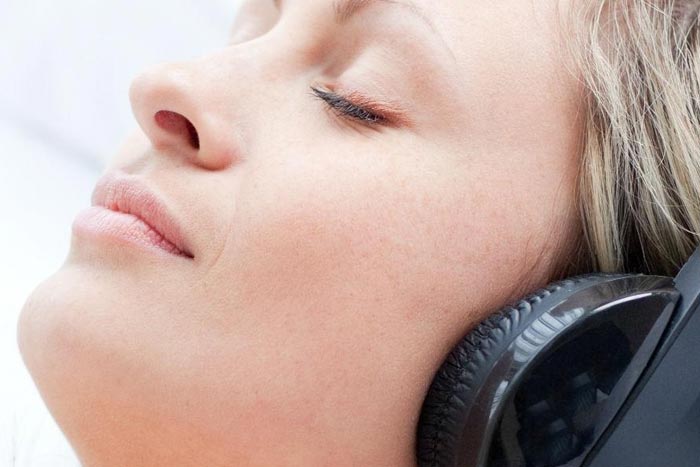Snoring Treatment
in Northern Phoenix, AZ
Dedicated to Providing a Positive Experience
Dr. Matthew Cavendish, DDS, PLLC provides snoring treatment options to patients throughout Phoenix, AZ and the surrounding areas. Dr. Cavendish and his team of highly-trained professionals are dedicated to giving patients a positive dental experience. We provide high-quality dental work in a happy and friendly environment. If you’ve ever wondered how to stop snoring while sleeping, our team can help.


What is Snoring?
Snoring is noisy breathing that occurs when air cannot flow easily through the nose or mouth. Snoring is a common condition that can affect anyone but primarily affects older, overweight men. It occurs during sleep and usually isn’t indicative of a severe problem. However, chronic or long-term snoring can indicate a severe disorder called obstructive sleep apnea.
What Causes Snoring?
Snoring happens when airflow through the nose or mouth is blocked. It can be caused by various factors, including the anatomy of the mouth and sinuses, alcohol consumption, allergies, a cold, and one’s weight. Additional causes of snoring include, but are not limited to, the following:
- Nasal Problems – Nasal problems, such as a deviated septum, nasal polyps, or chronic sinus infections, can result in blocked nasal airways, contributing to snoring.
- Mouth Anatomy – Having a soft palate that is long or thick can result in a narrow airway. Additionally, an elongated uvula can obstruct the airway.
- Sleep Position – Sleep position can affect snoring. Snoring typically occurs when sleeping on one’s back; due to gravity’s effect on the throat, the airway narrows.
- Sleep Deprivation – Sleep deprivation can cause the throat muscles to relax too much, resulting in excessive snoring during sleep.
- Alcohol Consumption – Drinking alcohol causes the muscles in the throat to relax, decreasing the body’s natural defense against airway obstruction.
Who’s More Likely To Snore?
While most people snore occasionally, some people are more likely to than others. Various risk factors make certain people more prone than others when it comes to snoring. These risk factors include, but are not limited to, the following:
- Gender – Snoring and obstructive sleep apnea are both more common in men.
- Weight – Snoring is more common in people who are overweight or obese.
- Age – As we age, our muscle tone decreases, and our airways constrict.
- Allergies – Nasal stuffiness from allergies can block airflow through the mouth and nose.
- Anatomy – A long soft palate and large tonsils can narrow the airway and cause snoring.
- Alcohol – Alcohol relaxes the muscles in the throat, which can lead to snoring.
- Family History – Snoring can sometimes run in families and be a hereditary issue.
How Does Snoring Show Up in the Mouth?
Mouth-based snoring occurs when someone breathes out their mouth instead of their nose during sleep. This is typically a result of blocked nasal passages, enlarged tonsils, or weak palatal tissue. It is possible to resolve mouth-based snoring with several treatments.
The Symptoms of Snoring
Snoring is often associated with obstructive sleep apnea, but not everyone who snores has obstructive sleep apnea. If any of the following symptoms accompany snoring, it is important to schedule an appointment with a healthcare professional such as Dr. Matthew Cavendish, DDS, PLLC. The symptoms in reference are signs of sleep apnea and include the following:
- Restless sleep
- Loud snoring
- Morning headaches
- High blood pressure
- Chest pain at night
- Difficulty concentrating
- Gasping or choking at night
- Sore throat upon awakening
- Excessive daytime sleepiness
- Witnessed breathing pauses during sleep

Non-Surgical Treatments for Snoring
A wide range of surgical and non-surgical treatments can lessen or stop snoring. At Dr. Matthew Cavendish, DDS, PLLC, we offer various treatment options, including:
- Oral Appliances – A small, plastic device is worn inside your mouth during sleep. It can help your airways remain open by moving the jaw or tongue.
- Surgery – There are various types of surgery available to stop snoring. These include removing or shrinking the tissue or the stiffening of the soft palate.
- CPAP – A continuous positive airway pressure machine treats sleep apnea and can reduce snoring. It does so by blowing air into your airways while you sleep.
Contact Us Today for Snoring Treatment
If you are a chronic snorer and are looking for treatment, you’ve come to the right place. Dr. Matthew Cavendish, DDS, PLLC and his highly-trained team of dental professionals have provided reliable surgical and non-surgical snoring treatment for years. Contact us today to schedule a consultation.
